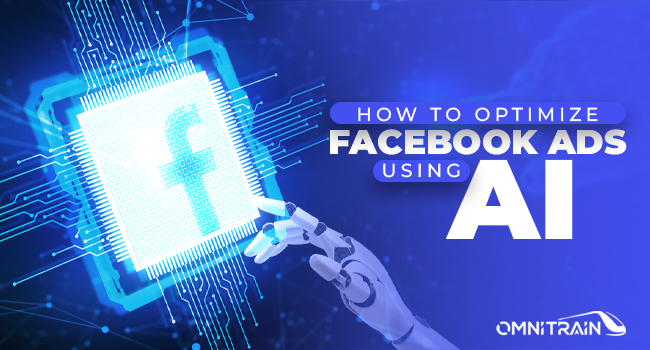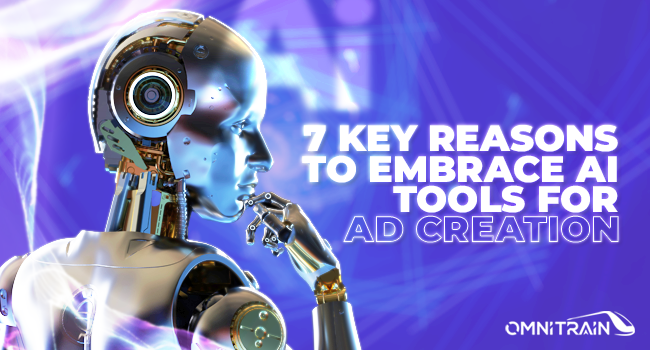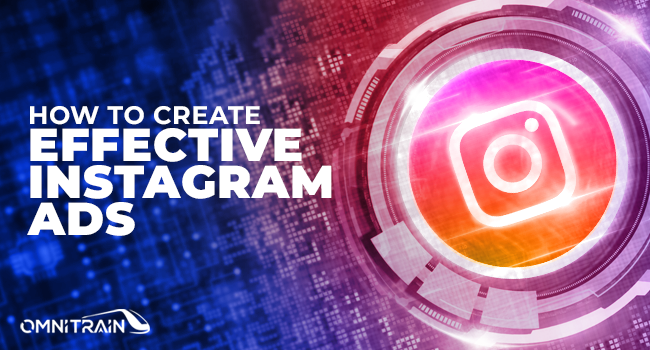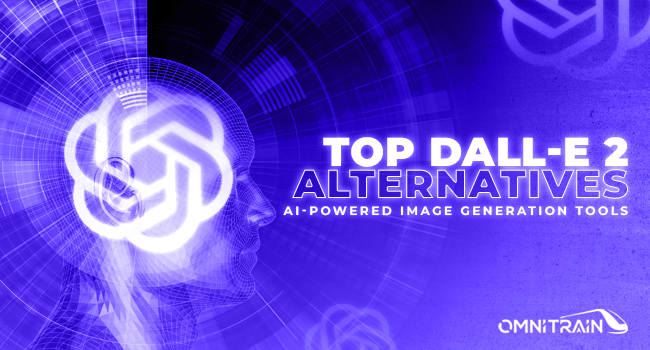Emotional Appeal Advertising: Top 5 Powerful Benefits
Emotional appeal advertising taps into our feelings to create powerful connections between brands and consumers. These emotional connections aren’t just about selling products; they’re about building relationships that influence consumer behavior on a deeper level.
Here are some quick insights into why emotional appeal advertising is a game-changer:
- Deepens Consumer Loyalty: Emotional campaigns foster strong brand loyalty and repeat purchases.
- Increases Brand Recognition: Ads that evoke emotion are more memorable, leading to higher brand recognition.
- Boosts Engagement: Emotional content encourages consumer interaction, driving more engagement than traditional ads.
- Influences Decision-Making: Emotionally charged ads often bypass rational evaluation, directly impacting purchasing decisions.
This approach is backed by data showing that about 31% of advertisers see gains from emotional campaigns, which outperform those that appeal to logic alone. As consumers, our hearts often guide purchases more than our heads, making emotional advertising a critical tool for brand success.
My name is Josh Benson, and as the founder of OmniTrain, I’ve helped businesses leverage emotional appeal advertising to drive impactful consumer connections. This experience fuels our work to simplify and improve ad creation, ensuring consistent brand growth through emotion-driven campaigns.
Understanding Emotional Appeal Advertising
Emotional appeal advertising is a strategy that connects with consumers on a deeper level by tapping into their emotions. This method doesn’t just focus on the logical aspects of a product, like its features or price. Instead, it digs into how a product or brand makes people feel, creating an emotional connection that can significantly influence consumer behavior.
Emotional Connection
Creating an emotional bond with consumers is at the heart of emotional appeal advertising. When brands connect emotionally, they become more than just a name or logo. They transform into a part of the consumer’s life, evoking feelings that range from happiness and love to fear and trust. This bond is powerful because it makes the brand more relatable and memorable.
Consider the famous “Share a Coke” campaign by Coca-Cola. By personalizing bottles with names, the brand didn’t just sell a drink; it sold a feeling of belonging and personal connection. This emotional appeal led to a surge in sales and brand engagement.
Subconscious Influence
Emotions play a crucial role in our subconscious mind. They often drive decisions without us even realizing it. Emotional appeal advertising leverages this by crafting messages that resonate on a subconscious level.
For instance, a heartwarming story in an ad can trigger feelings of nostalgia, making consumers more likely to choose that brand without analyzing the decision logically. This subconscious influence is why emotional ads tend to be more effective than purely informational ones.
Decision-Making
When it comes to making purchasing decisions, emotions often outweigh logic. Research shows that 85% of purchasing decisions are made subconsciously. This means that consumers are more likely to be swayed by how a brand makes them feel rather than a detailed list of product specifications.
Emotional appeal advertising capitalizes on this by creating ads that bypass rational evaluation. They go straight to the heart, encouraging consumers to make decisions based on feelings. This is why brands that master emotional advertising often see higher conversion rates and increased customer loyalty.
Types of Emotional Appeals in Advertising
Emotional appeal advertising taps into a variety of human emotions to connect with audiences. Let’s explore some of the most effective types:
Happiness
Happiness is a universal emotion that can create a positive association with a brand. Ads that showcase joyful moments, like McDonald’s family meal gatherings, evoke feelings of warmth and togetherness. These ads make the brand feel inviting and approachable, encouraging consumers to associate it with good times.
Sorrow
While it might seem counterintuitive, sorrow can be a powerful emotional appeal. People are often driven to avoid pain more than they are to seek pleasure. Campaigns that highlight suffering or loss, like those for environmental causes, can motivate action. For example, showing injured marine animals in anti-plastic campaigns has been more effective than sharing statistics alone.
Laughter
Humor is a great way to engage audiences and make an ad memorable. Funny ads are often shared, spreading the brand’s message organically. Samsung’s “Join the Flip Side” campaign used humor to compare their phones with competitors, leading to viral success and widespread brand recognition.
Anger
Anger can be a strong motivator, especially in social or advocacy campaigns. Ads that highlight injustices can spark a desire for change. Patagonia’s environmental campaigns, which openly show the consequences of neglecting nature, effectively use this emotional appeal to rally support and build a loyal customer base.
Empathy
Empathy allows people to connect with others’ experiences. Ads that evoke empathy, like the Always “Like a Girl” campaign, challenge stereotypes and encourage support for social causes. This emotional connection can lead to increased brand loyalty and positive brand perception.
Fear
Fear appeals create a sense of urgency. They highlight risks, prompting viewers to act to avoid negative outcomes. Health and safety campaigns often use this tactic, such as ads for home security systems showing potential break-ins, motivating consumers to purchase protection.
Love
Love-driven ads focus on connections and relationships. They evoke feelings of romance and affection, making products or services appear essential for meaningful connections. Apple’s ads often showcase the prestige of owning their products, connecting them with sophistication and desirability.
Trust
Trust is crucial in building long-term customer relationships. Ads that emphasize reliability and security, like those for financial services, reassure consumers. By projecting honesty and dependability, these ads foster trust and encourage brand loyalty.
Incorporating these emotional appeals can make advertising more impactful. By understanding which emotions resonate most with your audience, you can create ads that not only capture attention but also build lasting relationships.
Benefits of Emotional Appeal Advertising
Emotional appeal advertising offers several advantages that go beyond traditional marketing tactics. Let’s explore how this approach can benefit your brand.
Brand Loyalty
Building an emotional connection with consumers is key to fostering brand loyalty. When people feel emotionally connected to a brand, they’re more likely to stick with it, even when competitors offer lower prices or similar products. According to research, 74% of consumers prioritize purchasing from brands they are emotionally connected to. This connection reduces customer churn and encourages repeat purchases.
Lasting Associations
Emotional advertising helps create lasting associations between your brand and specific emotions. When an ad triggers joy, nostalgia, or even fear, these emotions become linked to your brand. This makes your brand more memorable and recognizable. The next time consumers feel that emotion, they’ll think of your brand first.
Differentiation
Standing out in a crowded market is tough, but emotional appeal advertising can set your brand apart. While many brands focus solely on product features and prices, tapping into emotions allows you to reach consumers on a deeper level. This strategy enables your brand to differentiate itself by creating unique and compelling narratives that resonate with audiences.
Increased Revenue
Emotional advertising doesn’t just build connections; it drives sales. Ads that evoke emotions have been shown to double conversion rates and increase revenue by 31%. When consumers feel an emotional pull, they’re more likely to make a purchase. This emotional response can lead to higher sales and stronger financial performance.
By leveraging the power of emotions, brands can achieve significant benefits. Emotional appeal advertising not only improves consumer engagement but also leads to stronger brand loyalty, memorable associations, and increased revenue.
Examples of Emotional Appeal Advertising
Emotional appeal advertising has been a game-changer for many brands. Let’s look at some successful campaigns, industry leaders, and innovative strategies that have harnessed the power of emotions to connect with consumers.
Successful Campaigns
Google’s “Parisian Love” is a classic example of how to weave emotions into advertising. This simple yet powerful ad aired during the 2009 Super Bowl and told a love story through a series of search queries. It showed how Google Search could be a part of life’s most emotional moments. Viewers were deeply moved, with comments like, “I almost shed a tear.” The ad’s success lay in its ability to evoke the emotion of love without ever showing a person or product.
Nike’s “Just Do It” campaign is another standout. It taps into the emotional trigger of leadership and empowerment. The slogan encourages people to take action, pushing them to achieve their dreams. This emotional appeal has resonated deeply with consumers, making Nike a leader in emotional advertising.
Industry Leaders
Coca-Cola is renowned for its emotional appeal advertising. Their campaigns often focus on happiness and togetherness, as seen in their “Share a Coke” campaign. By personalizing their product with names, Coca-Cola created a sense of belonging and connection. This strategy not only boosted sales but also strengthened brand loyalty.
Airbnb also excels at using emotions in their ads. Their “Belong Anywhere” campaign taps into the feeling of belonging and trust. It portrays Airbnb as more than just a travel service; it’s a community. This emotional connection has helped Airbnb stand out in a competitive market.
Innovative Strategies
Brands like Save the Children have used emotional appeal to highlight important social issues. Their “Most Shocking Second a Day” campaign used the emotion of outrage to draw attention to the Syrian crisis. It was a powerful reminder of the impact of war on children, garnering over 100 million views. This strategy shows how emotions can be used to inspire action and awareness.
Even Dawn’s “Dawn Helps Clean Wildlife” ad, rated highly for emotional connection, showcases how a brand can leverage emotions like compassion and responsibility. It highlights the brand’s role in wildlife conservation, creating a heartfelt connection with viewers.
These examples illustrate the power of emotional appeal advertising in creating impactful, memorable campaigns. By tapping into emotions, brands can forge deeper connections with their audience and achieve remarkable success.
Next, we’ll explore how OmniTrain can help you create emotionally resonant ads using AI-powered tools.
Creating Emotionally Resonant Ads with OmniTrain
Creating ads that resonate emotionally with your audience is no longer a guessing game. With OmniTrain’s AI-powered tools, you can design ads that tug at heartstrings and drive engagement. Let’s explore how OmniTrain makes this possible.
AI-Powered Ad Creation
OmniTrain leverages cutting-edge AI to craft ads that connect on an emotional level. The platform analyzes data to understand which emotional triggers are most effective for your target audience. By doing so, it ensures that your ads are not only seen but felt.
Imagine having the ability to create hundreds of custom ads in seconds—OmniTrain makes this a reality. The AI considers factors like art style, messaging, and emotional tone to produce ads that align perfectly with your brand’s voice.
Emotional Resonance
Emotional resonance is key to successful advertising. When ads evoke emotions like happiness, trust, or empathy, they leave a lasting impression. OmniTrain helps you tap into these emotions by using AI to predict which elements will resonate most with your audience.
For instance, the platform can analyze past successful campaigns, like Google’s “Parisian Love” or Nike’s “Just Do It,” to identify patterns that work. It then applies these insights to your ad creation process, ensuring that your campaigns are both impactful and memorable.
Seamless Integration
OmniTrain’s tools are designed for seamless integration across various platforms. Whether you’re aiming for a heartfelt message on social media or a powerful story in a video ad, OmniTrain ensures your ads are ready to shine. This adaptability means your message is consistently delivered across the digital landscape, enhancing your brand’s emotional appeal.
With OmniTrain, creating emotionally resonant ads is not just about technology—it’s about understanding your audience on a deeper level. By combining AI insights with human creativity, you can craft ads that not only capture attention but also forge genuine connections.
Next, we’ll address some frequently asked questions about emotional appeal advertising to deepen your understanding of this powerful strategy.
Frequently Asked Questions about Emotional Appeal Advertising
What is emotional appeal advertising?
Emotional appeal advertising is a marketing strategy that connects with consumers on an emotional level. Instead of focusing on facts and logic, these ads tap into feelings like happiness, fear, love, and trust. This approach aims to create a bond between the brand and the consumer, making the ad more memorable and engaging.
A great example is Coca-Cola’s “Share a Coke” campaign. By personalizing bottles with names, it encouraged people to share moments of joy and connection. This emotional hook made the campaign a huge success.
How does emotional appeal influence consumer behavior?
Emotions play a big role in decision-making. When ads evoke emotions, they are more likely to be remembered and influence opinions. Research shows that emotional appeal advertisements can double conversion rates and boost revenue by 31%.
For instance, fear-based ads can create urgency, prompting immediate action. A classic example is public service announcements that use fear to promote safety measures. On the other hand, ads that evoke happiness, like those from McDonald’s, can build positive associations with the brand, increasing loyalty and repeat purchases.
What are examples of emotional appeal in advertising?
Many successful campaigns use emotional appeal to connect with their audience. Here are a few notable examples:
-
Apple’s “Think Different”: This campaign appeals to the desire for innovation and creativity, inspiring consumers to see themselves as unique and capable of changing the world.
-
Nike’s “Just Do It”: This iconic campaign taps into the emotions of empowerment and determination, encouraging people to push their limits.
-
Airbnb’s “Belong Anywhere”: By focusing on the feeling of belonging and community, this campaign resonates with travelers seeking authentic experiences.
These examples show how emotional appeal advertising can create strong connections and influence consumer behavior. By understanding and leveraging emotions, brands can craft campaigns that truly resonate with their audience.
Next, we’ll conclude our exploration of emotional appeal advertising and discuss how OmniTrain can improve your marketing strategy.
Conclusion
Emotional appeal advertising is a powerful tool in today’s marketing landscape. By connecting with consumers on a deeper emotional level, brands can create lasting impressions and drive engagement. This approach goes beyond mere product features, tapping into feelings such as happiness, love, trust, and even fear to inspire action and loyalty.
At OmniTrain, we understand the impact of emotionally resonant ads. Our AI-powered platform allows marketers to effortlessly create ads that tug at the heartstrings. With OmniTrain, you can craft high-converting social media ads without the need for extensive design skills or creative input. Our technology does the heavy lifting, allowing you to focus on what matters most—connecting with your audience.
Why choose OmniTrain for your emotional advertising needs?
- Speed and Efficiency: Generate compelling ads in seconds, not hours.
- Emotional Resonance: Our AI understands how to evoke the right emotions and create memorable connections.
- Scalability: Easily produce a variety of ads custom to different audience segments.
Incorporating emotional appeal into your marketing strategy can lead to increased brand loyalty, stronger customer relationships, and higher revenue. OmniTrain is here to help you harness the power of emotions in advertising, making your campaigns more impactful and effective.
Ready to transform your advertising strategy? Explore OmniTrain’s AI-powered ad creation and see how we can help you create ads that resonate deeply with your audience.










